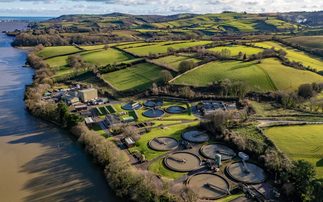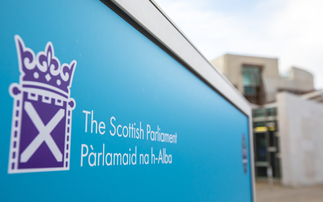There's nothing wrong with ambition when it comes to cutting energy waste from homes. A quarter of the UK's carbon emissions come from our homes; millions suffer in cold, unhealthy properties; fuel bills are rocketing. A radical programme to slash energy waste is a no-brainer.
But before last week, the furthest the Government had gone was to chuck around some vague, albeit large, numbers: the Green Deal could, it was suggested, be taken up by 14 million homes by 2020. That's nearly five thousand homes, every day, for a decade - ambitious indeed. But aspiration is one thing: cold, hard commitments on things like how many properties, to what depth of improvement, and what will happen if the policies don't live up to the hype, are all missing.
This matters because uncertainty is bad for business confidence - as seen, for example, in the considerable uproar from the renewables industry and wider investment community over the Government's proposed revisions to the Feed-in tariffs for small scale energy generation.
That's why businesses are lining up alongside Friends of the Earth in a broad coalition of over 60 organisations - all of whom are calling for certainty about the government's plans for energy efficiency to be enshrined in the Energy Bill currently being debated in the House of Commons.
Organisations such as B&Q, the Federation of Master Builders, the Federation of Small Businesses and Marks & Spencer are all going to be central to delivering on the Green Deal.
All of them, and many more besides, are backing the Warm Homes Amendment - an addition to the Energy Bill to require the Government to come up with what they don't currently have: a decent, resourced and accountable plan for how their energy efficiency policies will deliver on carbon and fuel poverty targets. Whether the Green Deal flies or flops, it will have to be part of a set of policies that add up to the change we need. Companies can't be expected to invest if they have no certainty whether there will be a market there to service, or how big it will be.
Setting the bar higher than just the Green Deal is important, because its fundamental limitations as a model mean it just isn't going to work for millions of people - not least the fuel poor, who may be underheating their homes at present and would respond to a more efficient home by heating it properly first, not paying off a loan. By the end of 2011, over one in five households in the UK will be living in fuel poverty as energy bills continue their unrelenting upward march. Around 1.3 million children already live in homes so poorly insulated they are a health hazard.
The Government's response, the new Energy Company Obligation (ECO), will be valuable, but as it ultimately ends up on bills there's no way it can be a big enough pot to fill in all the gaps that the Green Deal can't reach.
The Government has shown that it can listen. In response to a campaign being led by Friends of the Earth and our coalition partners, it announced last week that the Energy Bill will be amended so that by 2018 landlords won't be able to rent out the least energy efficient properties, those in Energy Performance Certificates bands F or G. This is promising: if brought forward to 2016, and if tenants demanding energy efficiency measures are given protection from eviction, it will be a big and very welcome step forward.
But more needs to be done. In debates on the Energy Bill last week, Greg Barker modified his stance on the overall ambition for the Bill. He promised "reasonable steps" on the face of the Bill to "aim to follow a trajectory that is consistent with the UK carbon budgets". No promise on fuel poverty, but it's progress - albeit not yet bold nor accountable enough.
Businesses are backing the Warm Homes Amendment because it is an essential fix for a Bill which promises the Earth, but risks delivering uncertainty - not just for the companies that will be integral to delivering the improvements we need to see, but also for prospects of a genuine revolution in energy efficiency.
Craig Bennett is director of policy and campaigns at Friends of the Earth







